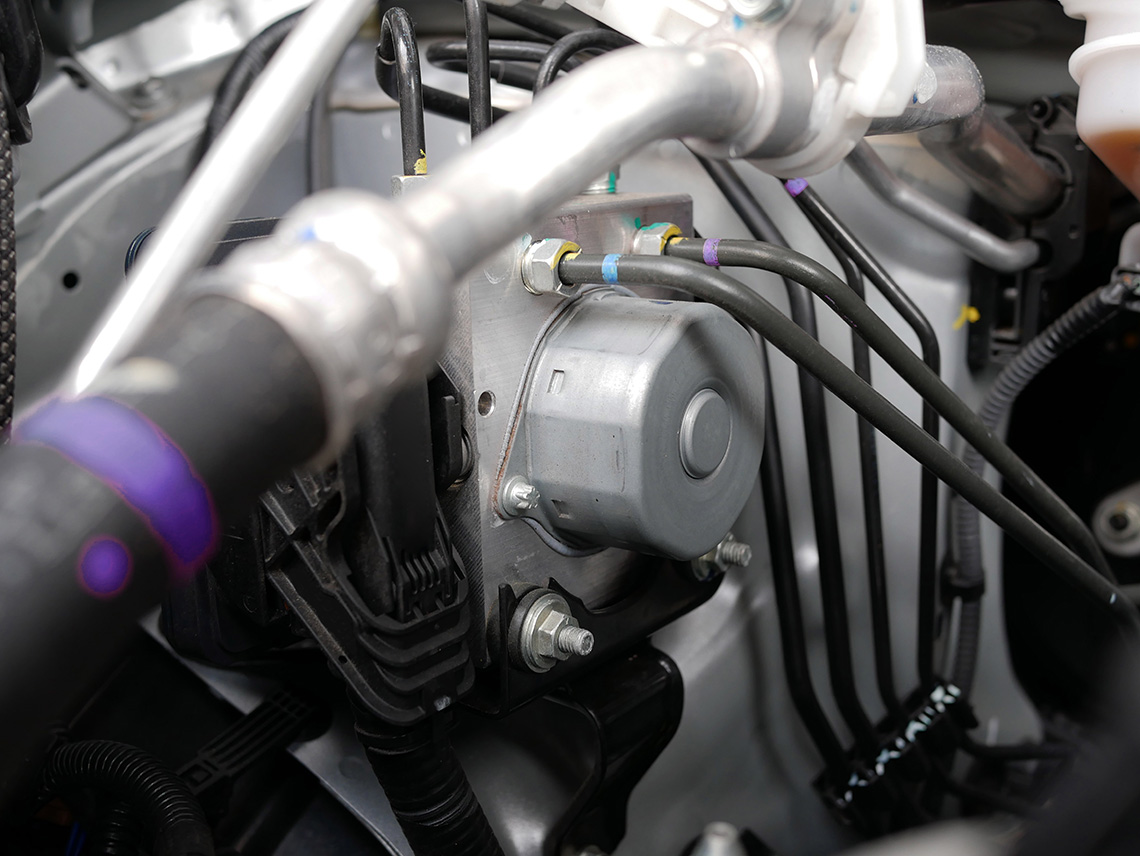Problems with Locking/Binding Brakes on Ford Fiesta, B-Max, C-Max and Transit
Locking or binding brakes is a common problem on Ford Fiesta, B-Max, C-Max and Transit models, often caused by a faulty ATE MK100 ABS system. This article will provide more insight into how to effectively diagnose and fix this problem.

Description of the problem
Locking or binding brakes refers to a situation where the brake pads remain in contact with the brake discs even after the brake pedal is released. This problem poses significant safety risks and can lead to accelerated wear of brake components. The root cause is often related to the ATE MK100 ABS system, which requires targeted troubleshooting and repair. There are several possible causes for this problem.
Defective ABS sensor
A malfunctioning wheel speed sensor can send inaccurate signals to the ABS module, resulting in incorrect brake activation. Always check the ABS sensors for damage, misalignment or loose connections. Use diagnostic equipment to monitor sensor data and ensure accurate readings.
Problems with brake fluid pressure cause an error in the ABS module
A malfunctioning brake master cylinder / uneven distribution of brake fluid pressure can also cause the brakes to lock, lock or bind. As a result, the pressure does not release quickly enough. So, in addition to the brake master cylinder, thoroughly examine the hydraulic system for clogged/restricted brake lines, faulty valves, or damaged seals. The ABS receives brake fluid through the brake lines which leads into the plugs in the hydraulic section. Once this is no longer the case, this can result in brake locking/binding problems. One of the main solutions for locking of brakes on Ford Fiesta, B-Max, C-Max and Transit models is to have the ATE MK100 ABS system remanufactured. Automotive technicians can rely on ACTRONICS for this service, which offers several benefits.
Our team of experienced technicians has in-depth knowledge and experience in remanufacturing and reparing ABS units. We follow an extensive testing and quality control process to ensure that the remanufactured ABS systems meet or exceed OEM specifications. This means that you can offer your customers a reliable, sustainable and high-quality solution for a fraction of the new price.
Update: brake pressure problems caused by a faulty ATE MK100 ABS module are also becoming more and more common in the BMW 1 series F20 / F21, BMW 3 series F30 / G20, Volkswagen Caddy III facelift / Caddy IV and Volkswagen Golf VII.

 da
da de
de es
es fr
fr it
it nb
nb nl
nl pt
pt sv
sv fi
fi